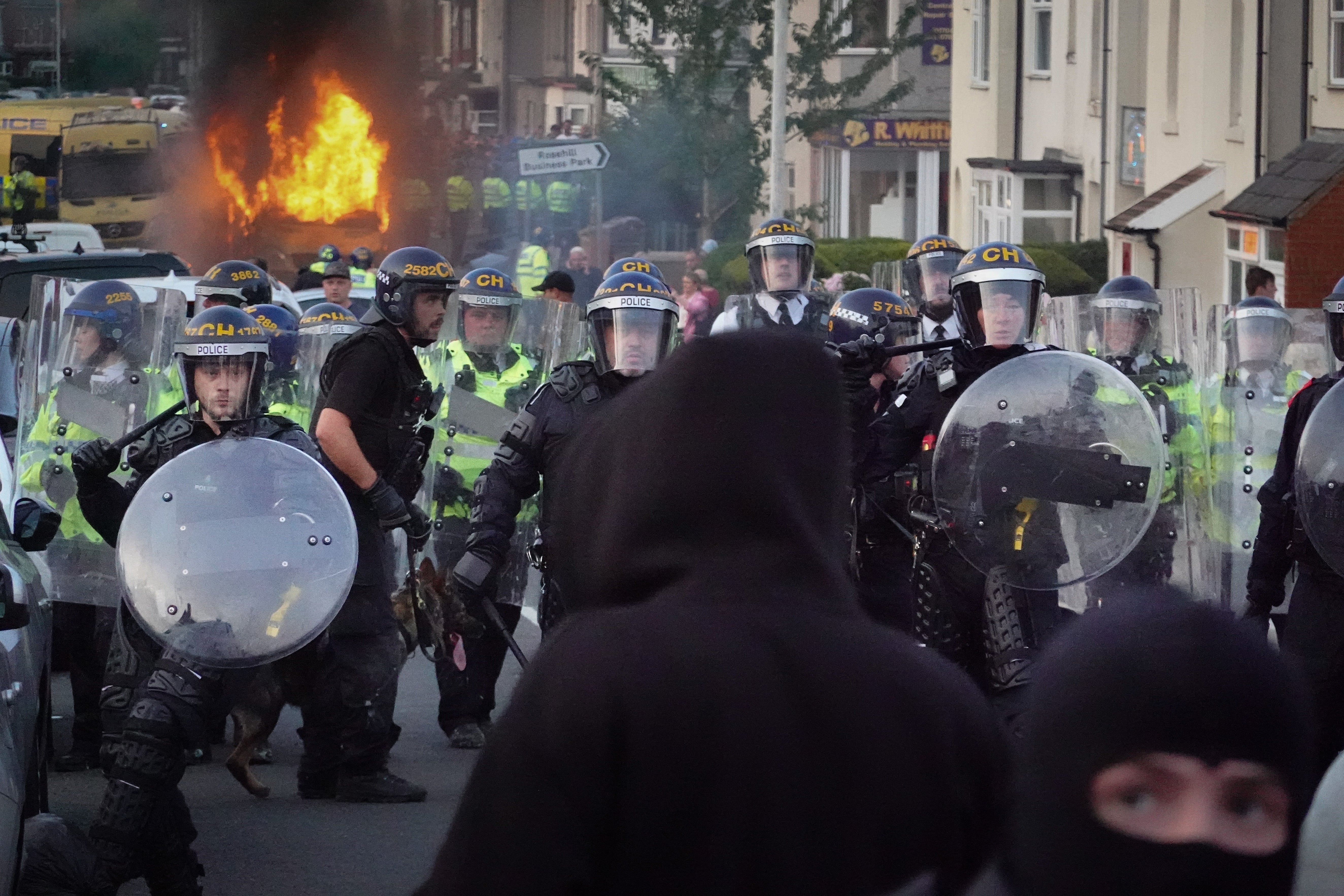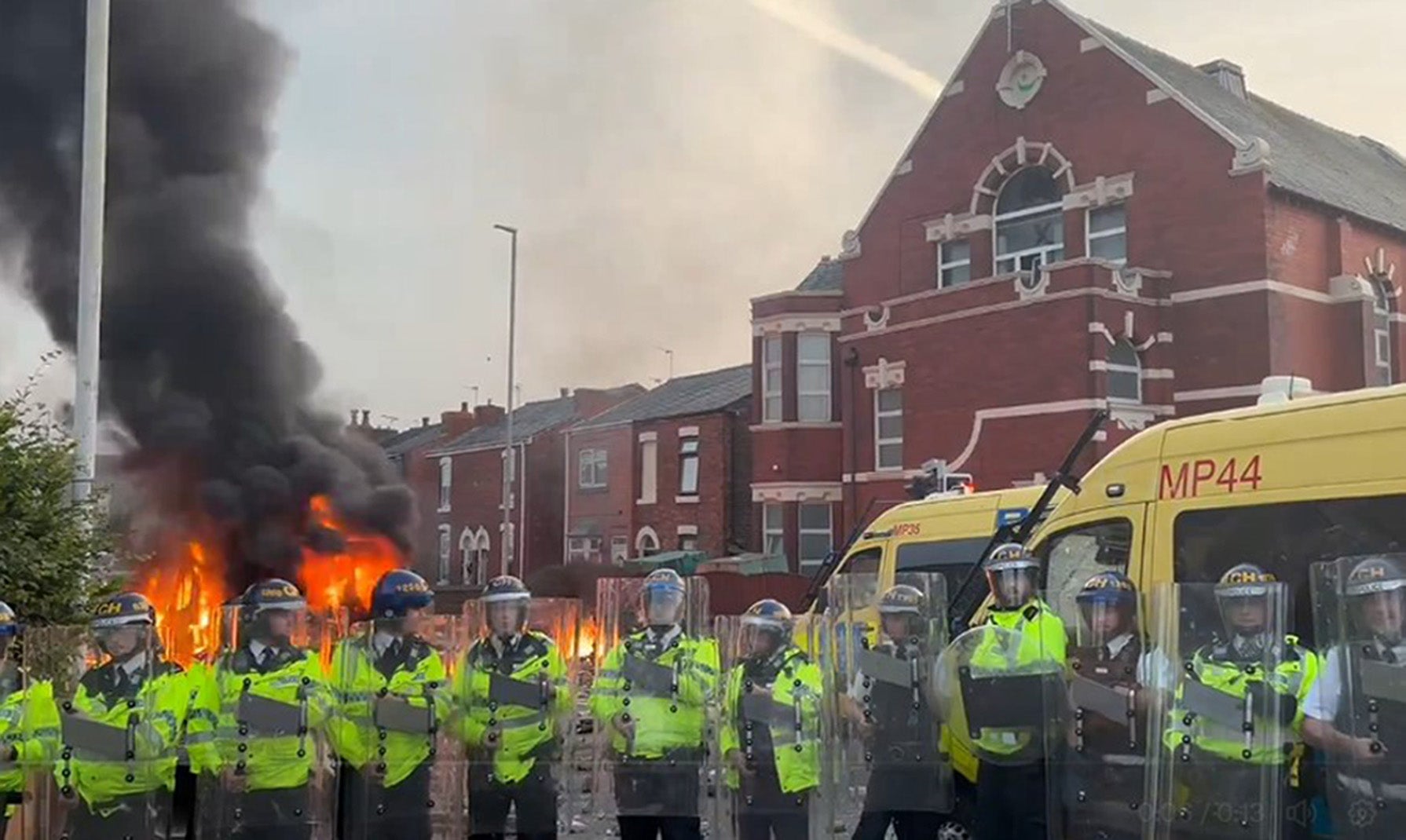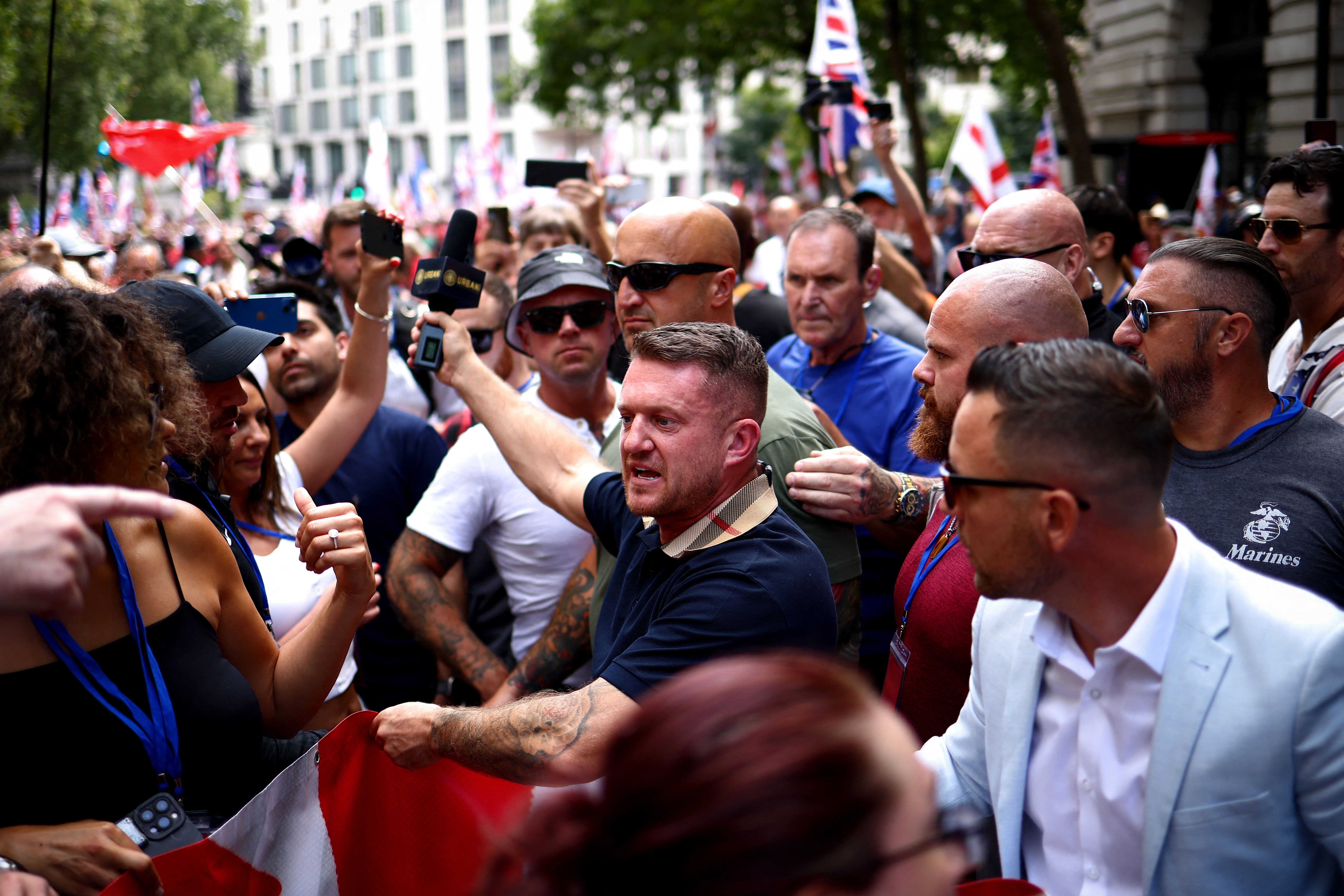Who are the EDL? Far right group believed to be behind Southport riot
It is suspected that the riots in Southport that saw 39 police officers injured were organised by the English Defence League

Violent clashes took place outside a mosque in Southport on Tuesday night as the town mourns a knife attack that left three young girls dead on Monday.
Rioters mobilised as a vigil was due to take place for the three victims: Bebe King, six, Elsie Dot Stancombe, seven, and Alice Dasilva Aguiar, nine.
Expressing far-right views, the group gathered outside a mosque to protest against Islam after misinformation shared online suggested the attacker, 17, is Muslim.
Thirty-nine police officers were injured as unrest broke out, with rioters targeting officers. A police van was also set on fire, as violence took place just a few streets away from where the vigil was held.

In a statement on Tuesday night, Merseyside Police said they believed supporters of the English Defence League (EDL) were behind the disturbances.
The far-right group has a strong presence on social media, where leaders will mobilise supporters. It was once led by Tommy Robinson, with many members chanting his name during the events.
Here’s everything you need to know about the anti-Islam hate organisation:
Who are the English Defence League (EDL)?
Founded in 2009, the EDL is a far-right, Islamophobic pressure group. Its members will often mobilise for street demonstrations against immigration and multi-culturalism, and sometimes mount counter-action to protests with progressive aims.
The group rose to prominence between 2009 and 2012, during much of which it was informally led by Robinson. Real name Stephen Yaxley-Lennon, Robinson was imprisoned several times during these years for violent or disruptive behaviour.
Many of the early EDL members were recruited from Luton football club supporters, Robinson’s home town team. The group has links to football hooliganism.
The EDL’s rise coincided with the decline of the British National Party as an electoral force. The far-right political party gained over half a million votes at the 2010 general election, a record-high. It has now faded into electoral obscurity.

Robinson stood down as leader of the EDL in 2013, citing fears over the “dangers of far-right extremism.” The same year, he would publicly apologise to Muslim communities and offer to give evidence to the police to aid their investigation of EDL members.
He has since been convicted for contempt of court and stalking, and was most recently arrested on 28 July under anti-terror laws. The 41-year-old had screened a film to supporters in central London repeating false claims he had made about a Syrian refugee, over which he lost a libel case in 2021.
His arrest came after he organised a counter-protest to a Stand Up To Racism march that was happening in the capital on July 27. Engaging with his supporters on Facebook, he said the event would be the “biggest patriotic rally the UK has ever seen.” Nine of his supporters were arrested after clashes with the police.

Last year, right-wing protesters mobilised in the city on Armistice Day to mount a counter-protest to the weekly pro-Palestine marches which have been ongoing during the Israel-Gaza conflict. The group clashed with police at the Cenotaph, and 145 people were arrested, most of whom belonged to the counter-protesters.
Speaking after the events then-prime minister Rish Sunak said: “I condemn the violent, wholly unacceptable scenes we have seen today from the EDL and associated groups and Hamas sympathisers attending the National March for Palestine.”
Despite a decline over the past decade, EDL members are known to mobilise after certain events to express anti-Islam views, such as the attack in Southport. Members are thought to have also spread to other far-right groups such as National Action and Patriotic Alternative, which also organise protests.
